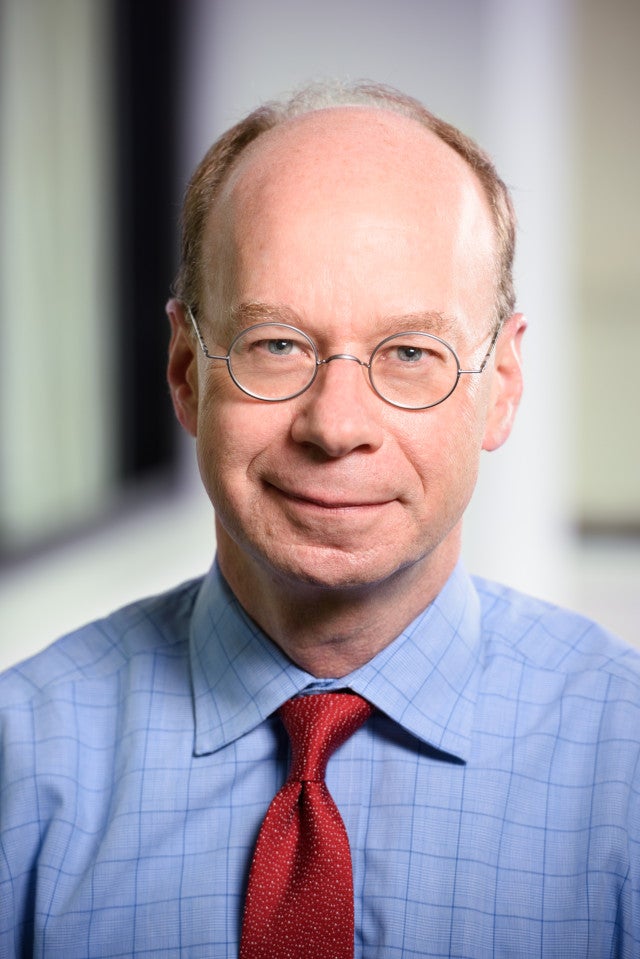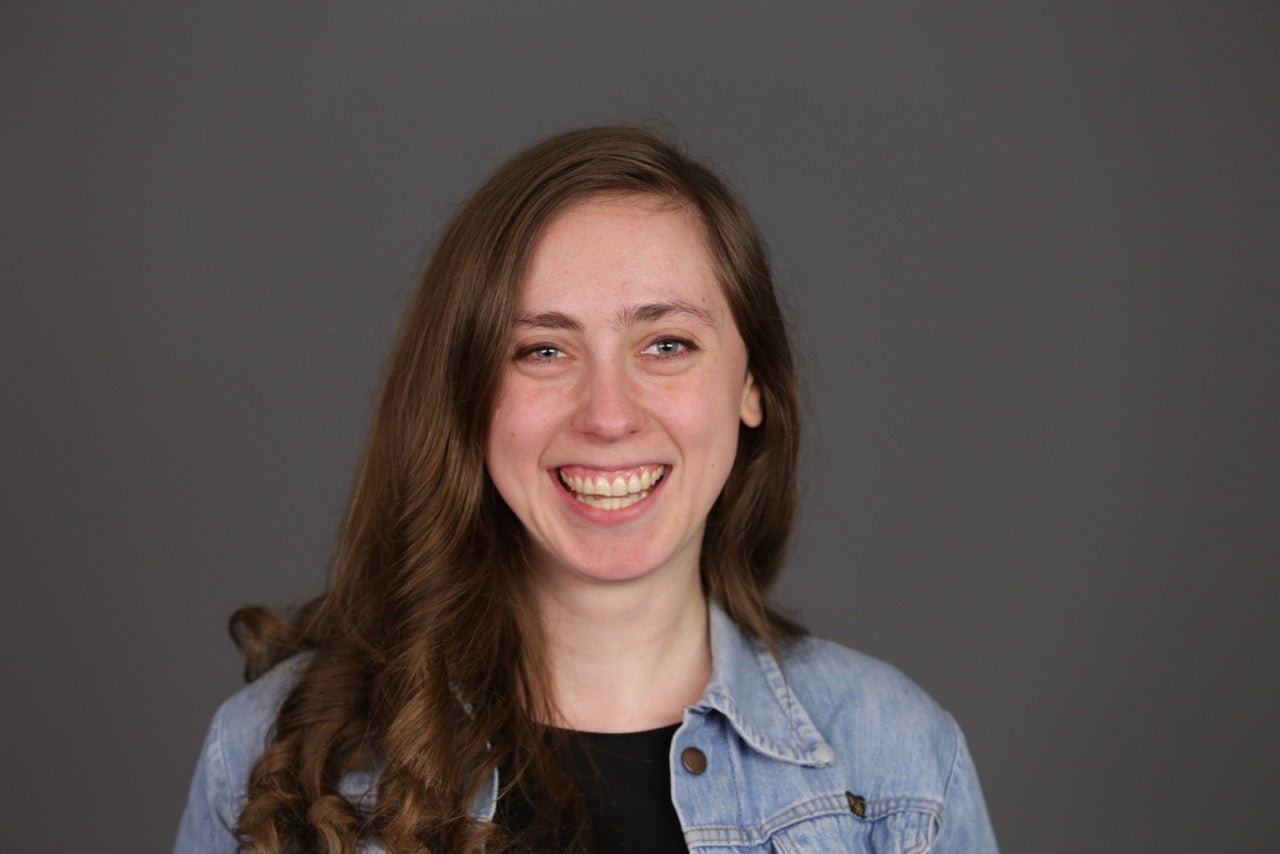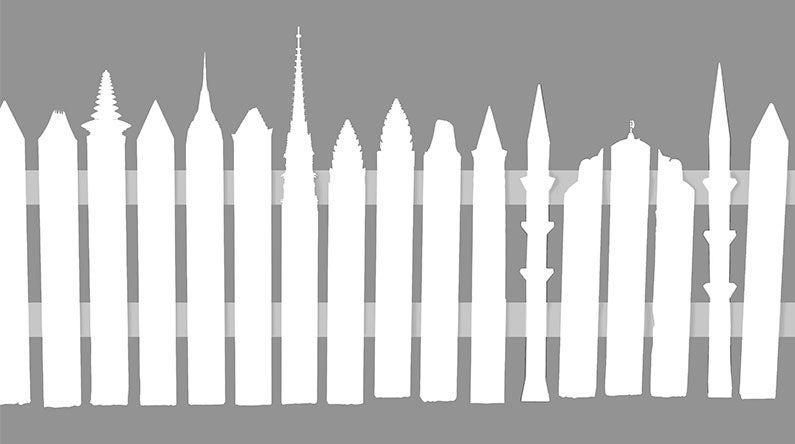KINGSTON, R.I. — Sept. 6, 2019 — “In God We Trust,” “God Bless America,” and “One Nation Under God” all point to the continuing impact of religion on the American public square. A 2014 survey conducted by the Pew Research Center found that 89 percent of Americans professed “belief in God or a universal spirit,” the highest percentage in the developed world. Pew has also found that people in America who are deeply religious are happier, while also noting that individuals are leaving organized religion in record numbers while still calling themselves deeply spiritual.
The University of Rhode Island will address the contributions, conflicts, trends and complexities of faith and spirituality in the nation and their influence on public life when it launches the 56th edition of its annual Honors Colloquium, “Religion in America.” (See the complete schedule for URI’s premier public lecture series.) If you can’t make it to the lectures, you can watch online.
The colloquium, which runs Tuesday evenings at 7, from Sept. 17 through Dec. 10 (except Oct. 1 and 8, Nov. 26 and Dec. 3) at Edwards Hall, 64 Upper College Road, on the Kingston Campus, will feature nine speakers addressing topics including “Catholicism in America,” “Protestanism and the Rise of Evangelicalism,” “Islam in America,” “Religion and Medicine” and “Religion and Politics in the United States.”
The University is presenting two art exhibits as part of the colloquium, “Burned Over” and “Letters and Pictures from a Box,” and the play, “A Brief History of the Earth and Everything in It.” A related exhibit titled, “One Nation Under God: Reflections on Religion in America,” will show at the Hera Gallery in Wakefield.
This year’s colloquium is also a major part of the 25th anniversary of URI’s Center for the Humanities.
The series’ first speaker will be Alan Cooperman, director of religious research at the Pew Research Center, a nonpartisan organization that informs the public about the issues, attitudes and trends shaping the world based on information gleaned from public opinion polling, demographic research, content analysis and other data-driven social science research.
In his Sept. 17 talk, Cooperman will address “What Does Religion in the United States Look Like Today?”
“An exceptionally high number of Americans believe in God and attend houses of worship,” said Evelyn Sterne, associate professor of history and director of the Center for the Humanities, a colloquium coordinator along with Associate Professor of History Alan Verskin and Professor of Art Annu Palakunnathu Matthew. “But we are seeing an increase in what we call religious ‘nones.’”

Cooperman will address the increasing number of individuals in this group, those who describe themselves as atheist, agnostic or nothing in particular, as well as other trends.
Cooperman is an expert on religion’s role in U.S. politics and has reported on religion in Russia, the Middle East and Europe. He plays a central role in planning the center’s research agenda and writing its reports. Before joining the Pew Research Center, he was a national reporter and editor at The Washington Post and a foreign correspondent for the Associated Press and U.S. News & World Report. He graduated magna cum laude from Harvard University in 1982 and started in journalism at The Berkshire Eagle in Pittsfield, Mass. He is an author of “Mormons in America,” “Muslim Americans,” the “U.S. Religious Knowledge Survey,” “‘Nones’ on the Rise” and “A Portrait of Jewish Americans.” He also was the primary editor of “Global Christianity” and “Global Restrictions on Religion.”
Verskin said Cooperman is the right expert to lead off the colloquium since Pew conducts a massive survey of religion every seven years that contains numerous questions on a wide variety of issues. “When we talk in our classes and research about how people feel about religion, this is where we get the data,” Verskin said.

On Sept. 24, Emma Green, a staff writer at The Atlantic, will discuss “Catholicism in America,” in a state where 42 percent of the population call themselves Catholic, still the largest percentage of any state in the union. Kecia Ali, professor of religion at Boston University, will give The Eleanor M. and Oscar M. Carlson Women’s Studies Lecture on “Islam in America” on Oct. 22, and Daniel Judson, dean of the Rabbinical School at Hebrew College in Newton Centre, Mass., will talk about “Judaism in America” on Oct. 29.
“Many people have an interest in this topic, and there is a buzz on campus about it,” said Sterne, who added that her history of religion classes at URI are among her favorites.
“Students in these classes are the most engaged and intrigued. We discuss how faith influences the way people operate in the world, and how individuals influence their faith groups. We address the big questions, as well as how religion informs the nitty gritty of people’s lives and how they interact with their neighbors, what they eat and where they work. We expect to do the same throughout the colloquium.”
“America is the most religious of all developed countries, but people are hard pressed to define what the impact of this is, or how it changes the way people look at issues,” Verskin said. “For instance, there are a lot of presumptions about how religion affects political choices, but people are often mistaken, especially about groups other than their own, about how beliefs show up in the ballot box. The complexity of the issues is due both to the fact that there are internal divisions within religious communities and because not all communities feel that their religious beliefs should be enshrined in U.S. law.”
One of the points Verskin emphasizes with his students is that “this is not a class on how to be religious but about how religion shapes people’s lives in America. We think this topic will be exciting to people of any and no religion. We have the same message to those who wish to attend our lectures. Everyone is welcome and we anticipate a large and diverse audience.”

